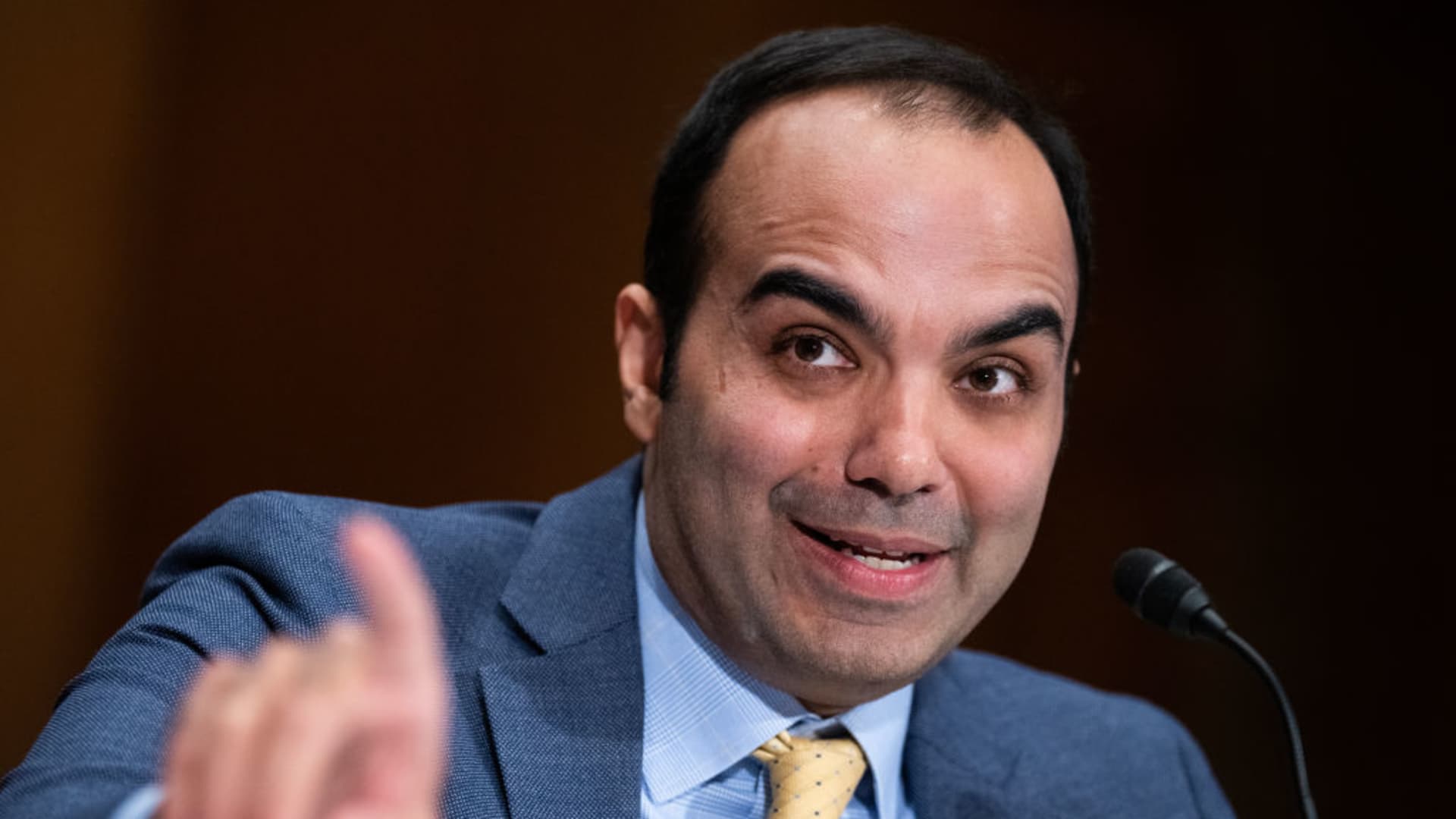[ad_1]
CFPB Director Rohit Chopra testifies during a Senate Banking, Housing and Urban Affairs Committee hearing titled “Semi-Annual Report of the Consumer Financial Protection Bureau to Congress” at the Dirksen Building on Thursday, Nov. 30, 2023.
Tom Williams | CQ-Roll Call, Inc. , getty images
The Consumer Financial Protection Bureau unveiled a new rule Tuesday that caps the typical late fees banks can charge customers at $8 per incident.
By reducing late fees from an average of about $32 to $8, more than 45 million card users will save an average of $220 annually, the CFPB said in a release.
The new rule, long expected after a preliminary proposal was released early last year, comes after the agency said it had reviewed market data related to the 2009 CARD Act. The regulations associated with that law gave card issuers the ability to charge ever-increasing amounts of late fees.
“For more than a decade, the credit card giants have been exploiting loopholes to charge American consumers billions of dollars in junk fees,” CFPB Director Rohit Chopra said in the release. “Today’s rule ends the era of big credit card companies hiding behind inflation while they raise fees on borrowers and inflate their earnings.”
The announcement is the latest defense in President Joe Biden’s war against so-called junk fees.
According to the CFPB, big credit card issuing banks have been increasing the cost of late penalties since 2010 and the fees are set to exceed $14 billion in 2022. The industry benefits from customers with low credit scores, who are charged an average of $138 annually in late fees per card, Chopra said.
The rule, which applies to card issuers with at least one million open accounts, also eliminates automatic inflation adjustments on late fees.
Instead, the agency said it would adjust fees if necessary to cover collection costs, and that card issuers could charge higher fees if they could prove it was necessary. The CFPB said the rule does not directly affect interest rates.
An industry group criticized the CFPB rule Tuesday, saying many card users will see higher interest rates and less credit availability. The group also questioned the process by which the rule was issued. The CFPB says Congress has given it the authority to administer the CARD Act.
“The policy goals of the rule are consumer redistribution, not consumer protection,” Lindsay Johnson, head of the Consumer Bankers Association, said in a statement. “Equally worrying is that this rule continues the CFPB’s deeply problematic practice of prioritizing headlines at the expense of the legal process.”
Another industry group, the American Bankers Association, said it was considering options for taking action against the CFPB’s rules.
In a release, Republican Senator Tim Scott of South Carolina said he would invoke the Congressional Review Act to fight the implementation of the late fee cap.
The CFPB said the rule becomes effective 60 days after it is published in the Federal Register.







